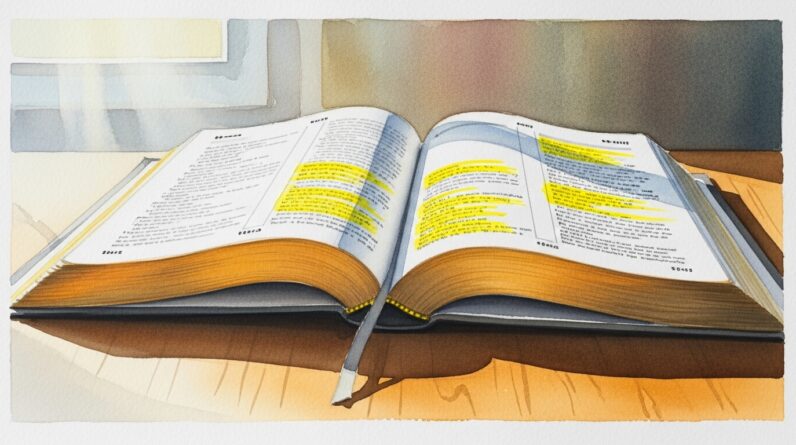God’s Strength Made Perfect In Weakness
You’ve probably heard the phrase “God’s strength made perfect in weakness” before. It’s a line that can comfort and confuse you at the same time. Comforting because it tells you that you don’t have to be strong on your own; confusing because it runs counter to everything our culture teaches about power, success, and self-sufficiency. In this article, you’ll explore what the Bible means by strength in weakness, why God often chooses to work through your vulnerability, and how you can live into this truth in everyday life. The goal is to encourage you to embrace your weaknesses as spaces where God’s strength can move and be displayed.
The Biblical Foundation of “Strength in Weakness”
The clearest statement about God’s strength showing up in human weakness comes from the apostle Paul. He wrote about a “thorn in the flesh” and God’s surprising response to it. When Paul asked for the thorn to be removed, God replied, “My grace is sufficient for you, for my power is made perfect in weakness.” That sentence flips your assumptions: instead of removing all weakness, God sometimes allows it so that His power can shine through 2 Corinthians 12:9.
This promise isn’t an isolated slogan. Scripture repeatedly affirms that human limitation sets the stage for divine action. Consider that God often uses unlikely people—those who are flawed, poor, or weak—to accomplish His purposes. The pattern you see in the Bible points to a consistent theology: God’s power doesn’t compete with your weakness; it complements and fulfills it.
Paul’s Thorn: A Case Study in Strengths in Weaknesses
Paul’s experience teaches you something practical about suffering and limitation. He called a persistent problem “a thorn in the flesh” and understood it as a weakness he could not fix on his own. Instead of a miraculous deliverance, God answered with sufficiency: He promised that His grace would be enough and that His power would be perfected in Paul’s frailty 2 Corinthians 12:9-10.

That response reshapes your priorities. You don’t need the removal of every difficulty to experience God’s power; you need faith that His grace is sufficient amid those difficulties. Paul’s conclusion—that he would boast all the more gladly about his weaknesses—shows you a posture to adopt. When you admit weakness, God’s power becomes more visible.
What “Weakness” Means in Scripture
Weakness in Scripture isn’t only physical illness or mental frailty. It includes spiritual weakness, limitations in resources, social vulnerability, moral failures, and emotional struggles. When you talk about strength in weakness, you’re recognizing any place where you lack control, ability, or influence and where you must rely on God’s power instead of your own.
This broader understanding helps you see why God might allow weakness: to redirect your trust from yourself to Him. The psalmist expresses a similar dependence when he says, “My flesh and my heart may fail, but God is the strength of my heart and my portion forever” Psalm 73:26. In other words, your failures and frailties become the context for God’s sustaining strength.
Strength in Weakness throughout Biblical Stories
The Bible is full of stories where God’s power shows up through unlikely channels, teaching you how He often chooses to operate.
- Moses was slow of speech and reluctant, yet God used him to lead Israel out of Egypt Exodus 4:10-12. His weakness highlighted God’s presence.
- Gideon considered himself the least in his family, but God called him a mighty warrior and used a small army to win a large victory, proving that victory comes from God, not human numbers Judges 6:15-16.
- David, a shepherd boy, defeated Goliath not because of armor or status but through trust in God 1 Samuel 17:45-47.
- The church began with simple fishermen and ordinary people who, under the Spirit’s power, turned the world upside down Acts 4:13-14.
These examples reveal a pattern: God’s power often appears most dramatically when human ability is most insufficient. The result is that God receives the glory, and you learn to depend on Him.
Jesus and the Paradox of Divine Strength in Human Weakness
Jesus is the ultimate example of God’s strength displaying itself in human weakness. He emptied Himself of independent glory in the incarnation and lived a life marked by dependence on the Father and the Spirit Philippians 2:6-8. On the cross, what looked like defeat became the arena of victorious love. In Jesus’ vulnerability, you see the deepest expression of strength in weakness—God’s redeeming power poured out through suffering and surrender.
Jesus taught you to take up your cross and follow Him, which means embracing a life that sometimes requires you to surrender strength for the sake of spiritual fruit Matthew 16:24. His example shows you that weakness is not the end but a door through which God’s kingdom comes.
The Theological Why: Why God Uses Weakness
Why would a sovereign God choose weakness as His preferred canvas? Several theological reasons help you make sense of this:
- Dependence fosters a relationship. When you can’t do it yourself, you turn to God, and that fosters intimacy.
- God’s glory is best displayed when human ability is insufficient. The gospel emphasizes God’s initiative and grace.
- Suffering and weakness refine character. Trials produce perseverance, character, and hope Romans 5:3-5.
- God upends human categories of power. The cross shows that the last will be first, and the weak can be instruments of God’s purposes 1 Corinthians 1:27-29.
When you hold these ideas in tension, it becomes easier to accept that God can use your weakness in ways you wouldn’t have imagined.

Strength in Weakness and Spiritual Growth
Your spiritual growth often follows seasons of weakness. When you rely on God’s strength, you cultivate spiritual disciplines like prayer, Scripture, worship, and confession. Those disciplines are less impressive when everything in life is smooth. But when weakness presses in, they become lifelines through which God sustains and strengthens you.
Consider how Paul says he delights in weaknesses so Christ’s power may rest on him 2 Corinthians 12:9-10. That delight doesn’t come from enjoying suffering itself, but from recognizing that suffering produces reliance on God and spiritual fruit you may not otherwise experience.
Practical Ways to Embrace Strength in Weakness
You can adopt practical habits that help you welcome divine strength in your weak moments. These aren’t magic formulas, but they orient you toward dependence and openness to God’s work.
- Be honest with God and others about your limitations. Confession and vulnerability create space for grace.
- Practice regular prayer that focuses on dependence rather than performance. Ask God for help specifically and persistently.
- Root yourself in Scripture so your perspective changes from “I must fix this” to “God can work in this,” Hebrews 4:16.
- Participate in a faith community where weakness is met with compassion, not shame.
Each of these actions helps you learn to live inside the paradox that your weakness can be the place where God’s strength is most evident.
How to Pray When You Feel Weak
Prayer in seasons of weakness is both simple and profound. You don’t need eloquence; you need honesty. The psalmists model raw prayers, pouring out grief, fear, and pleading while expecting God to respond Psalm 34:17-18.
When you pray from weakness, try these approaches: acknowledge your inability, ask for God’s help specifically, wait in silence for God’s presence, and praise Him for past faithfulness. These practices turn your prayers into a dialogue where dependence grows and God’s power becomes present.
Strength in Weakness and the Role of Community
You don’t experience God’s strength in isolation. Community matters because the Body of Christ is designed to carry one another’s weaknesses. Scripture commands you to bear one another’s burdens so that the load isn’t yours alone Galatians 6:2. In practical terms, that means you should seek help, receive prayer, and allow others to support you when you’re weak.
Community also guards against false self-reliance. When other believers remind you of God’s promises and stand with you in practical ways, your weakness becomes a shared reality that God can use for good, including mutual growth and testimony.
When Weakness Feels Like Failure
It’s easy to interpret weakness as spiritual failure, but that’s a misreading. Scripture distinguishes between sin and weakness. Sin is a moral failure that requires confession and repentance; weakness is often a limitation or season of trial that requires dependence and perseverance. Paul’s thorn wasn’t necessarily sin; it was a condition God allowed to reveal His power 2 Corinthians 12:9.
If you’re tempted to equate weakness with condemnation, remember the gospel: God accepts you in Christ precisely while you are weak and needy Romans 8:1. Leaning into grace helps you see weakness as an opportunity for God rather than evidence of failure.
The Enemy’s Tactics: How Weakness Can Be Weaponized
Satan and spiritual discouragement often use your awareness of weakness to isolate and shame you. The enemy wants you to hide, compare yourself, and despair. But Scripture invites you to resist those tactics by confessing the lies, renewing your mind with truth, and reclaiming your identity in Christ, James 4:7.

Recognize when your weakness becomes an occasion for fear instead of faith. Call out the lies—“I am powerless,” “God has abandoned me,” “I’m useless”—and replace them with biblical affirmations like, “God’s power can work through my weakness” and “His grace is sufficient” 2 Corinthians 12:9.
Stories of Real-Life Strength in Weakness
You’ll find countless testimonies of ordinary people whose weaknesses became the soil for God’s work. Maybe you know someone who lost a job and, through that hardship, discovered a calling that better reflected God’s gifts. Or someone who went through a health crisis and found deeper intimacy with God and a new sense of ministry through their pain.
These stories matter because they are not abstract theology—they are lived experiences that validate the biblical pattern of strength in weakness. When you hear them, you get permission to be vulnerable and to expect God to act in surprising ways.
Strengths in Weaknesses and Mental Health
Talking about weakness must include mental health. Struggles with depression, anxiety, trauma, or other conditions are forms of weakness that aren’t moral failures but legitimate medical and spiritual realities. You can seek professional help—therapy, medication, support groups—while also trusting God to bring strength and healing.
The church’s response should be compassionate, grounded, and informed. You can be both realistic about the need for treatment and hopeful about God’s sustaining power. The promise that God’s power is made perfect in weakness doesn’t negate medical care; it complements it by adding spiritual support and hope Philippians 4:6-7.
When Weakness Leads to Ministry
Weakness often prepares you for ministry you couldn’t have undertaken if you’d remained self-sufficient. People who’ve walked through suffering tend to have empathy, credibility, and compassion that empower them to help others. Paul said that his weaknesses allowed Christ’s power to rest on him, which also made him an effective apostle 2 Corinthians 12:9-10.
Your story of struggle can become a ministry of presence—simple acts of listening, praying, and being available. This kind of ministry doesn’t require charisma or certainty; it requires authenticity and willingness to be used by God in your fragile state.
Practical Habits to Cultivate Strength in Weakness
You can nurture spiritual habits that help you embrace weakness without despair. These practices reorient your life around God’s strength rather than your performance.
- Keep a prayer journal where you track God’s faithfulness.
- Memorize and meditate on promises that speak to weakness, like 2 Corinthians 12:9 2 Corinthians 12:9.
- Develop rhythms of rest and Sabbath to prevent burnout.
- Serve in small, sustainable ways that don’t demand you to “fake strength.”
Each habit makes you more resilient and more likely to experience God’s power in the ordinary rhythms of life.
Dealing with Doubt When You Feel Weak
Doubt often follows weakness. You might question God’s presence or goodness when life doesn’t go the way you expect. The Bible doesn’t require you to hide your doubts. Even great saints like Thomas and David expressed doubts and received grace.
To deal with doubt, name it and bring it to God. Study Scripture that addresses your specific questions. Surround yourself with trusted believers who can help you process. Doubt can be a crucible that, when handled honestly, leads to deeper faith rather than the erosion of it.
When God’s Strength Means Waiting
Sometimes God’s best answer to your weakness is to teach you patience. Waiting is not passive resignation; it’s an active posture of trust. Isaiah encourages you to wait on the Lord and renew your strength; when you do, you’ll mount up with wings like eagles Isaiah 40:29-31.

Waiting refines your faith and shifts your perspective from immediate solutions to eternal purposes. It’s in those seasons that you can learn to rely more on God’s timeless sufficiency than on temporary fixes.
The Reward of Embracing Strength in Weakness
When you embrace your weakness as an opportunity for God’s strength, several good things typically follow: deeper intimacy with God, freedom from performance-based spirituality, increased humility, and often greater fruitfulness in ministry. Paul’s perspective—that he would rather boast about weaknesses so Christ’s power may rest on him—illustrates the deep reward of this posture 2 Corinthians 12:9-10.
You won’t always feel rewarded immediately. Sometimes the fruit comes later, in unexpected ways, and often in the form of character and transformation rather than public recognition.
Common Misunderstandings to Avoid
There are common traps you should watch for when talking about strength in weakness.
- Don’t romanticize suffering. Not all pain is noble; some are consequences or the result of a fallen world that God intends to heal.
- Don’t ignore practical solutions. Embracing weakness doesn’t mean you refuse help or responsibility.
- Don’t use scripture to justify abuse or passivity. Strength in weakness is about reliance on God, not acceptance of mistreatment or injustice.
Recognizing these pitfalls helps you apply the biblical principle of strength in weakness with wisdom and discernment.
How Churches Can Foster an Environment of Grace
Churches can be places where weakness is hidden or where it’s honored. To cultivate communities that celebrate God’s strength in human weakness, congregations should model vulnerability in preaching and pastoral care, create safe spaces for confession and support, and prioritize healing ministries that include both spiritual and practical care.
When the church embraces weakness well, it becomes a conduit for healing and transformation in the broader community, inviting people to experience a Gospel that meets them where they are.
Practical Short Prayers for When You Feel Weak
You don’t need long theological sentences to pray when you’re weak. Simple, honest prayers can align your heart with God. Try these short prayers:
- “Lord, I’m weak. Be strong in me.” 2 Corinthians 12:9
- “Help me to wait on you and trust your timing.” Isaiah 40:31
- “God, your grace is enough for me today.” 2 Corinthians 12:9
These short prayers are easy to remember and call you back to dependence in the moment.
Living Forward: A Few Practical Steps
As you move forward, consider a few practical next steps to live out the truth of strength in weakness:
- Name one area of weakness you’ve been avoiding and share it with a trusted friend or small group.
- Choose a verse about God’s sufficiency to memorize and meditate on this season, such as 2 Corinthians 12:9 2 Corinthians 12:9.
- Schedule a weekly rhythm of rest to counteract the pressure to perform.
Small steps compound into a lifestyle where God’s power is more evident because your reliance on Him is more consistent.
Final Reflections: Why This Matters to You
This teaching about God’s strength made perfect in weakness matters because it reorients the core of your faith. Instead of striving to cover up frailty, you’re invited to bring it before God—fully known and still loved. That invitation is liberating. It releases you from performance-based spirituality and invites you into a life where grace meets you in your need.
When you accept your weakness, you don’t become less useful to God; you become more available for Him to work through. Strength in weakness isn’t a theological abstraction; it’s a lived reality that reshapes how you pray, how you serve, and how you relate to others. It’s how God often chooses to reveal Himself, to you and through you.
If you’ve read this far, take a moment to reflect on one thing: where are you pretending to be strong? Where can you honestly invite God’s strength into your life today? The answer could mark the beginning of a new season of dependence, fruit, and peace.
Explore More
For further reading and encouragement, check out these posts:
👉 7 Bible Verses About Faith in Hard Times
👉 Job’s Faith: What We Can Learn From His Trials
👉 How To Trust God When Everything Falls Apart
👉 Why God Allows Suffering – A Biblical Perspective
👉 Faith Over Fear: How To Stand Strong In Uncertain Seasons
👉 How To Encourage Someone Struggling With Their Faith
👉 5 Prayers for Strength When You’re Feeling Weak

📘 Jesus and the Woman Caught in Adultery – Grace and Mercy Over Judgement
A powerful retelling of John 8:1-11. This book brings to life the depth of forgiveness, mercy, and God’s unwavering love.
👉 Check it now on Amazon 🛒💥
🔥 “Every great message deserves a home online.” 🌍💬🏡
Don’t let your calling stay hidden. Start a Christian blog or website using Hostinger — with 99.9% uptime, a free domain, and SSL, your voice can shine for God’s glory anytime, anywhere.
💥 Begin today. 🛒 Try it RISK-FREE! ✅
✝️ “Your body is God’s temple — care for it with purpose.” 💪💖🏛️
Renew your energy and restore balance naturally. Mitolyn helps support a healthy metabolism, giving you the vitality to live out God’s calling with strength and confidence.
🔥 Unlock Your Metabolic Power! ⚡Burn More Calories & Feel Great With Mitolyn. 💪
👉 Start Today. 🚀 Check Price Now. 🛒💰
💰 As a ClickBank & Amazon Affiliate, I earn from qualifying purchases.
📖 Acknowledgment: All Bible verses referenced in this article were accessed via Bible Gateway (or Bible Hub).
🚀 Want to explore more? 👉 Dive into our new post on Why Jesus? and experience the 🔥 life-changing truth of the Gospel!




